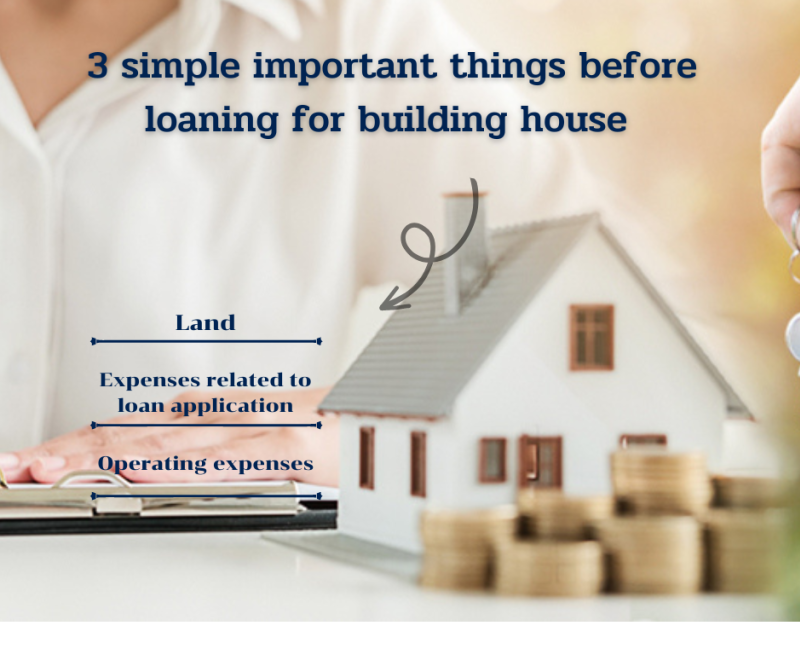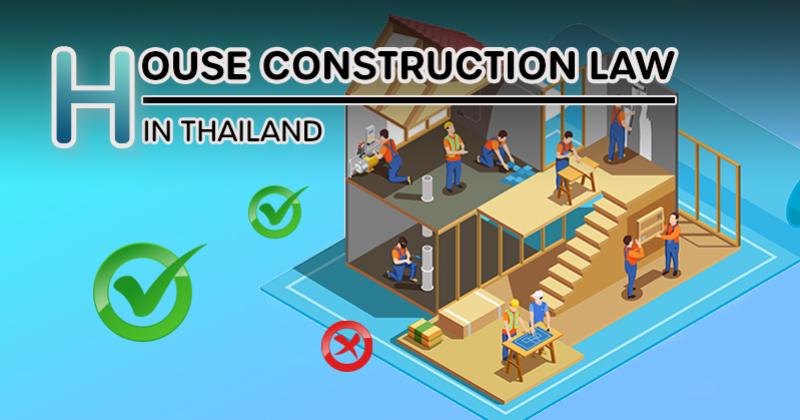
Created : 7 Apr 2023
Updated : 8 Apr 2023
Housing Loan
"Home loans" are often understood as borrowing money from a bank to buy a house. While this is not entirely wrong, there's more to it. In reality, we can also apply for a home loan to build a house on our own land. If we already own the land, we can even borrow up to 100% of the construction cost. This means we don't have to pay anything for the construction of the house. It's a very interesting option. Let's learn more about it.
1."Having only land can also be used as collateral to get a home construction loan."
If you have land and want to borrow money specifically for the construction of a house, it is possible to do so. The bank will consider the loan amount by evaluating the value of the house from the house construction plan, also known as the "green print," and the assessed value of the land together. The loan amount provided will not exceed 100% of the cost of building the house (as per the contract) and not exceed 90% of the appraised value of the land and house combined.
2.Required Documents for Applying for a Loan
When applying for a home construction loan with a bank, in addition to preparing personal identification documents such as ID card and house registration, and income-related documents such as salary slips, income certificates, and bank statements, we also need to prepare other documents related to construction, such as:
1.House construction plan and construction permit
2.Land ownership document and land deed
3.Building contractor's license and company registration document
4.Construction agreement and contract
5.Building material cost estimate and project cost breakdown
6.Inspection and quality control plan
7.Insurance policy for construction and property insurance
3. Preparation expenses
To summarize, we can have our dream home by having these three things.
1.Land
If you are still unsure about what type of house to build because you're not certain how much money you can borrow for a home loan, it's best to consult with a bank officer for an initial assessment of your borrowing capacity. You can also get additional information by consulting with a bank near you.
And if you're looking for a beautiful plot of land on Koh Samui to build your dream home, The Property Center offers a wide selection of gorgeous properties. Check out their beautiful listings at this link:https://www.thepropertycenter.asia/search-
Thank you information from : https://www.kasikornbank.com/th/kexpert/knowledge/articles/loan/Pages/Home_A059.aspx?fbclid=IwAR2ui2W_nOFGeuDwmNGr2Ilo7nJQKVDMkosZUi0tSdYeVCV35HSg1HzVCNM

